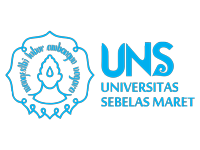Pengaruh Keaktifan Organisasi Terhadap Prestasi Akademik Mahasiswa Fakultas Kedokteran
DOI:
https://doi.org/10.20961/plexus.v1i3.45Keywords:
Organizational Activity, Cumulative Achievement Index, PBLAbstract
Background: The activeness of students in organizations is considered as one of the things that influences the learning achievement of students. Participating in organizations can also make students have experience and practice management. Medical students are required to master seven areas of competence including noble professionalism, insight and personal development, effective communication, information management, scientific foundation of medical science, clinical skills and management of health problems. These competencies can be achieved through academic learning or intra and extracurricular activities. The purpose of this study was to determine the effect of the level of organizational activeness with a cumulative achievement index (CAI) for students of the medical faculty of Unissula Semarang.
Methods: Analytic observational research with pre-posttest design. A total of 111 students of the medical faculty of Unissula Semarang class of 2016 were the subject of this study. Organizational activity was assessed by a questionnaire containing 12 questions about the quantity of organization. The CAI value of semester 2 and 6 and its difference were used. The effect of organizational activity on CAI was analyzed by the Wilcoxon and Kruskal Wallis tests.
Results: The GPA value for semester 6 was significantly higher than in semester 2 for all of the organizational activities level includes low, medium and high categories (p <0.05). However, the increase in the value of the CAI was not related to the organizational activity level (p> 0.05).
Conclusion: The level of activeness in organizing has no effect on the CAI of students of the medical faculty of Unissula Semarang.
References
Anisa, R. (2018) ‘Hubungan Antara Prestasi Belajar Dengan Keikutsertaan dan Tingkat Keaktifan Dalam Berorganisasi Mahasiswa Tahun Kedua dan Ketiga Fakultas Kedokteran Universitas Islam Malang’, Jurnal Kesehatan, 7(1), pp. 51–56.
Apiwie, P. (2013) ‘Perbedaan Prestasi Belajar Antara Mahasiswa Jurusan Sejarah Fakultas Ilmu Sosial Universitas Negeri Semarang Angkatan 2008’, Indonesian Journal of History Education, 2(5), pp. 34–39.
Bakhriansyah, M. (2012) ‘Korelasi antara Lama Studi dan Tingkat Kecemasan Mahasiswa’, Jurnal Pendidikan Kedokteran Indonesia, 1(2), pp. 54–58.
Basori, H. M. (2016) ‘Hubungan Antara Keaktifan Mahasiswa Dalam Organisasi Kemahasiswaan Dan Motivasi Belajar Dengan Prestasi Belajar Mahasiswa Pendidikan IPS FIS UNY’, (May), pp. 31–48.
Bhagat, V. et al. (2018) ‘Stress among Medical Students and Advantages of Metallisation Therapy in General: A Review of Literatures’, Advances in Human Biology, 8(May-August), pp. 59–63. doi: 10.4103/AIHB.AIHB.
Djamarah, S. . (2011) Rahasia sukses belajar. Jakarta: Rineka Cipta.
Haryono, E., Akhdinirwanto, W. and Ashari (2014) ‘Pengaruh keaktifan berorganisasi dan konsep diri tehadap indeks prestasi mahasiswa
program studi pendidikan fisika Universitas Muhammadiyah Purworejo Tahun Akdemik 2013 / 2014’, Radiasi, 4(1), pp. 77–80.
KKI (2012) Skdi. Edisi Kedu. Jakarta: Konsil Kedokteran Indonesia.
Leny and Suyasa, P. T. Y. . (2006) ‘Keaktifan Berorganisasi dan Kompetensi Interpersonal’, Jurnal Phronesis, 8(1), pp. 71–99.
Lestari, N. and Syabrus, H. (2015) ‘Influence Of Activity In Students Organizations On Result Learning Students Economic Education FKIP’, 2, pp. 1–11.
Puspita, M. P. (2011) ‘Strategi Pengembangan Softskills pada Dokter dan Perawat dalam Rangka Peningkatan Kinerja di RSUD Karangasem Bali Softskills Development Strategy of Doctors and Nurses to Performance Improvement In Karangasem General Hospital Bali’, pp. 32–37.
Sohilait, I., Manoppo, F. P. and Memah, M. F. (2019) ‘Hubungan Keaktifan Berorganisasi Dan Motivasi Belajar Dengan Prestasi Belajar Mahasiswa Angkatan 2016 Fakultas Kedokteran’, 1, pp. 1–8.
Sudiana, I. ketut (2012) ‘Upaya Pengembangan Soft Skills Melalui Implementasi Model Pembelajaran Kooperatif Untuk Peningkatan’, 1(2), pp. 91–101.
Widhiarso, W. (2010) ‘Pengembangan Skala Psikologi : Lima Kategori Respons ataukah Empat Kategori Respons ?’ Available at: http://wahyupsy.blog.ugm.ac.id/2010/12/12/pengembangan_skala_psikol ogi-lima_kategori_respons_ataukah_empat_kategori_respons/.
Yulianto, A. (2015) ‘Pengaruh Keaktifan Siswa Berorganisasi Terhadap Peningkatan Soft Skills Dan Prestasi Belajar Siswa the Effect of Student S ’ Involvement in Organizations on the Increase in Soft Skills and Students ’ Academic Achievement in’, E-Jurnal Pendidikan Teknik Mesin, 3(5), pp. 329–336.
Downloads
Published
Issue
Section
License
Copyright (c) 2022 Afridatul Luailiyah, Akbar Zadal Hilmi, Menik Sahariani

This work is licensed under a Creative Commons Attribution 4.0 International License.
Copyright @2022. This is an open-access article distributed under the terms of the Creative Commons Attribution 4.0 International License (https://creativecommons.org/licenses/by/4.0/).



